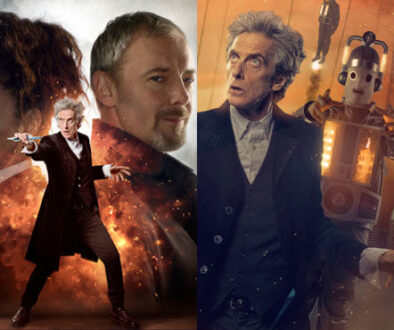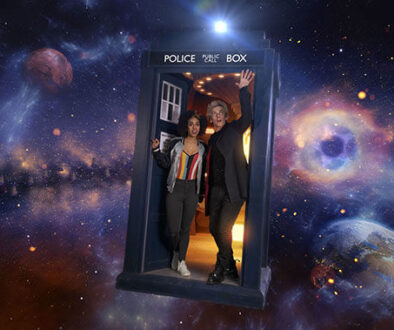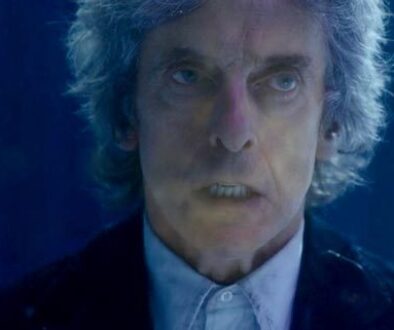Series 10: Knock Knock Review
Clint Hassell gives his verdict on the fourth episode of Doctor Who Series 10.

Note: this review contains full spoilers for episode 4 of Series 10.
“Knock Knock” certainly isn’t the worst episode of Doctor Who in recent memory, but it is Series 10’s weakest, ending a string of terrific episodes that outlined both the series’ mythology and introduced new companion Bill Potts to the narrative. Set in a creaky, old house and featuring the requisite flickering lightbulbs, self-slamming doors, and plenty of creatures scuttling just out of view, “Knock Knock” is so filled with hackneyed imagery that one’s enjoyment of the episode is tied solely to their tolerance of cinematic clichés.
The episode is so wrapped in horror movie tropes that it abandons plot logic. Surely, one of the previous 18 victims would have told their families the address of the place to which they were moving; wouldn’t the boxes of the previous tenants’ belongings have been discovered, as the police investigated their mass disappearance? Once he realized that the alien insects could be controlled by high-pitched sounds, why did the Doctor not attempt to influence them using his sonic screwdriver? How did the effectively orphaned Landlord continue to pay the mortgage or the utility bills on such a large house? The emotional weight of the episode is pinned on the surprising reveal that Eliza is the Landlord’s mother – – a pointless twist, as saving one’s mother is no more plausible a motive than saving one’s daughter. While the revelation does explain why the killings are spaced over time – – a narrative necessity, lest they arouse suspicion – – the episode fails to effectively capitalize on Bill’s connection to the Landlord’s grief at having lost his mother at a young age.
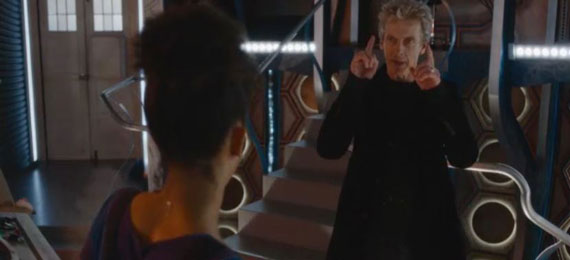
More problematic is how “Knock Knock” portrays Bill as suddenly being embarrassed to know the Doctor. Not only does this split the audience’s allegiance between the series’ two leads – – Bill has been the focal point of Series 10, but the series is titled Doctor Who – – no reason is given for her attitude. The two are not fighting (like Clara and the Doctor, after “Kill the Moon”), nor is humor derived from Bill’s reactions to the Doctor’s strange behavior (the Doctor’s nude Christmas antics, in “The Time of the Doctor”). Rather, Bill seems ashamed of the Doctor merely because it is a standard plot device to contrast a curmudgeonly older person with an embarrassed youth. This setup is too easy, too expected for a series as thoughtful as Doctor Who, and it is especially contrary to the program’s narrative, which usually finds the Doctor and the companion bonding with each other, their minds broadened by all of time and space, even to the exclusion of others. Further, this attitude is terribly out of character for Bill, who, though quiet, has always seemed comfortable, even confident being herself. Note that she is out to her friends, even referencing her sexual orientation in a conversation with new roommate Paul. Is Bill still discovering herself? Might she still be a bit complacent? Sure. But, unappreciative? Unwilling to find a friend where one presents itself? Hurtful in her dismissal? Not Bill. This was a terrible misstep.
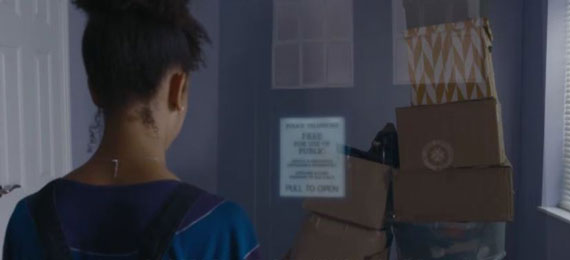
It is unfortunate that “Knock Knock” airs where it does within Series 10, as it marks the fourth episode in a row featuring a misunderstood, even sympathetic monster. While it is a key part of the Doctor’s character to see misinterpreted creatures for the lonely puddles, malfunctioning robot swarms, or enslaved behemoths that they truly are – – and while having an evil threat every week would become formulaic – – Series 10 could use a genuinely villainous presence. Yes, Sutcliffe was vile and the Landlord was insane, but both are dead now, the creatures in their charge freed from their control. For all its development of Bill’s character, this series has contributed little to Doctor Who’s canon of monsters. Despite the adorable marketability of the Emojibots, none of the Series 10 creatures featured thus far could return as antagonists in future episodes. When will we see this series’ Clockwork Droids, Judoon, Ood, Silents, Slitheen, or Weeping Angels?
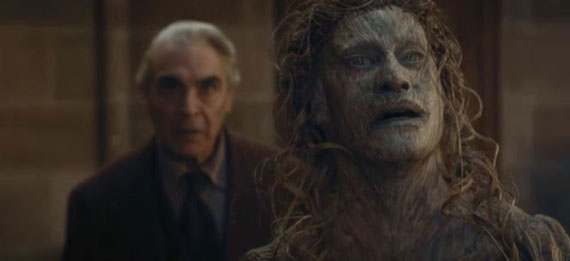
Finally, “Knock Knock” stumbles as it returns every supporting character to life, at episode’s end. This action not only defies the second law of thermodynamics – – undermining the episode’s plausibility, and therefore its emotional accuracy – – it also subverts the narrative’s horror premise by negating the events of first three acts. Certainly, the ending of Series 1’s “The Empty Child”/“The Doctor Dances” is a classic moment of Who lore, but it was tied thematically to that story’s plot. Here, the resurrection of Bill’s consumed roommates seems almost an apology: “Sorry that we scared you, kids! Bill’s new friends are all safe and happy. Please come out from behind the couch.”
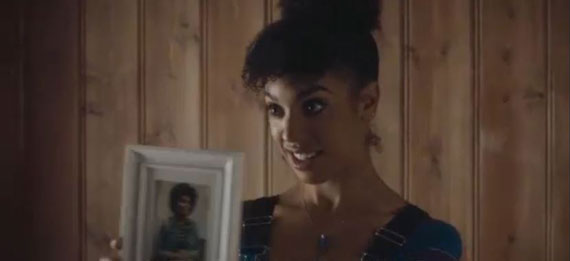
Despite its shortcomings, “Knock Knock” is not without merit. Note that, unlike Rose, Martha, and Donna, Bill did not immediately choose to escape her life as a full-time companion. “Knock Knock” subtly reveals why – – Bill is still processing the “living puddles, weird robots, [and] big fish” from her first adventure with the Doctor. (Clara had a similar reason to not live on the TARDIS, though the Maitland children were forgotten as her character was rebooted for Series 8.) Further, “Knock Knock” features Bill’s newfound sense of connection to the mother she never knew, in a touching scene where she hangs her mother’s photo in her new room, and Bill’s developing courage, as she ventures before her roommates to investigate the strange noises in the kitchen. Both events demonstrate that Bill has already begun to grow from her experiences in spacetime, a point traditionally made towards the end of a companion’s tenure (see: Martha singlehandedly saving the world, in the final story of Series 3; the tragedy of Donna’s fate, in Series 4). By continuing Series 10’s close examination of the companion experience, “Knock Knock” is partially redeemed for its lack of developed guest characters or narrative sense, though the episode still remains more “faulty” than “frightening.”





